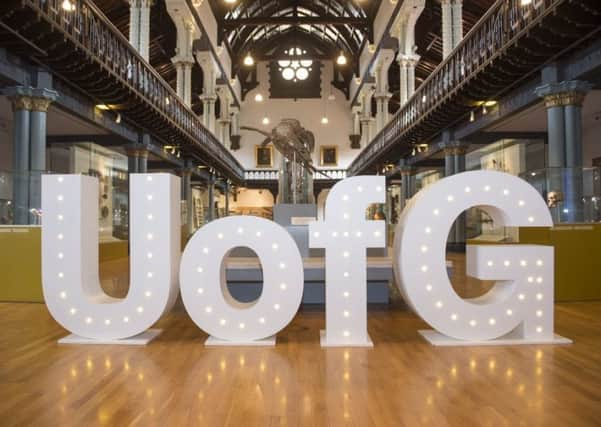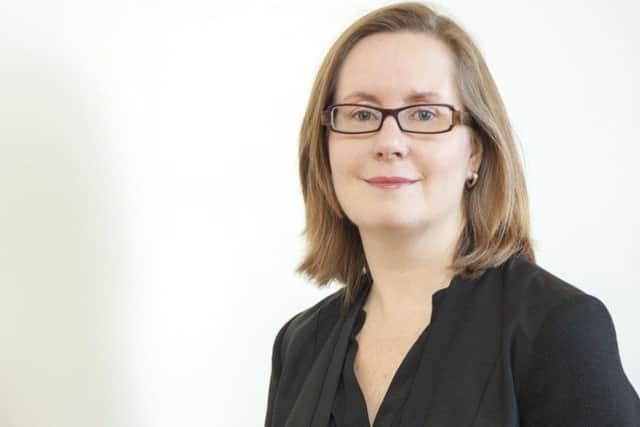Lorna Hughes: Academic studies into information more important than ever now


Information Studies in the University of Glasgow is the only academic unit in the UK which offers Masters’ level and accredited professional qualifications in museum, archive and library, and digital humanities fields, and it has led the development of professional training in all areas. At the heart of this activity lies digital methods, and Information Studies has fully embraced and driven forward the sector’s engagement with the opportunities associated with this key area.
The University of Glasgow’s achievements in this field are based on its close collaboration with archives, libraries and museums. These institutions hold the evidence of the past, and they collect and make available the record of what it is to be human. Individual items in collections are important to shaping our knowledge of the past and our contemporary society, but understanding how these collections are developed, managed, and made accessible is equally important in assessing the value of these materials as evidence.
Advertisement
Hide AdAdvertisement
Hide AdIncreasingly, cultural heritage is accessible in digital form. While this is valuable for increasing access to collections previously only available to those able to visit the organisations that host them, and for analysis and reanalysis of sources (doing data analysis of text in historic newspapers, or visual recognition of images, for example), this material can also be used in support of false or misleading agendas: fake news.


Understanding how information is created, used and managed is more important than ever in a ‘post-truth’ world: where has it come from? How was it selected? How is it preserved and accessed? Who owns the past, and who is collecting our records for the future?
Amateur data managers are currently archiving US datasets relating to climate data and web-archives of the pre-2017 White House; social media platforms are used for organising and campaigning. How do we verify, audit and preserve historic data and protect it from political interference?
There is more need than ever for open data and systems for sharing data and futureproofing data, protecting trusted data, and providing frameworks for data rescue. And for understanding co-creation and community generated content, and incorporating external, activist voices into the creation, management and use of information. These are the underpinning research questions that drive scholarship in Information Studies.
As we move into a world of the Internet of Things in which the everyday objects we use will generate vast quantities of data about all aspects of our life, these questions will become more important than ever. What are the ethical issues involved in using information from smart meters to monitor your movements and habits? Who owns the data your car generates about your driving?


The University of Glasgow has been exploring and investigating the use and management of information in a digital society since some of the first computer teaching labs for the humanities were established there in the 1980s. It is at the forefront of digital cultural heritage research and scholarship in the UK. It has been the home of groundbreaking research on records and evidence, digital humanities, and digital preservation and curation. This research draws heavily on the world-leading collections of the University’s library, archives, and special collections, and the Hunterian museum, in partnership with heritage organisations around the world.
The unique partnership between the University of Glasgow, Glasgow Life and The National Library of Scotland, which has seen the much-loved Kelvin Hall building transformed into a major cultural hub providing access to the vast collections managed by the University of Glasgow, Glasgow Life and the National Library of Scotland, including the national archive of the World Wide Web, provides a vibrant new setting for developing and extending the University’s pioneering Information Studies work.
On Thursday, 7 September 2017, the College of Arts of the University of Glasgow will be relaunching its Information Studies subject at Kelvin Hall with a major international symposium that will address these questions.
Advertisement
Hide AdAdvertisement
Hide AdSenior figures from the fields of digital humanities, libraries, archives and museums will debate the challenges facing the use and preservation of information, including John Sheridan, Digital Director, The National Archives; Daniel Pett, The British Museum; Paul Lihoma, Director, National Archives and Records of Malawi; Sarah Kenderdine, École polytechnique fédérale de Lausanne (EPFL); Anna Sexton, The National Archives; Helle Porsdam, Professor of Law and the Humanities, University of Copenhagen; Karen Brookfield, Heritage Lottery Fund; and Caroline Bassett, University of Sussex.
The event is free, but it’s necessary to sign up: https://www.eventbrite.co.uk/e/information-studies-university-of-glasgow-launch-event-tickets-36997941840
Professor of Digital Humanities Lorna M Hughes of the University of Glasgow